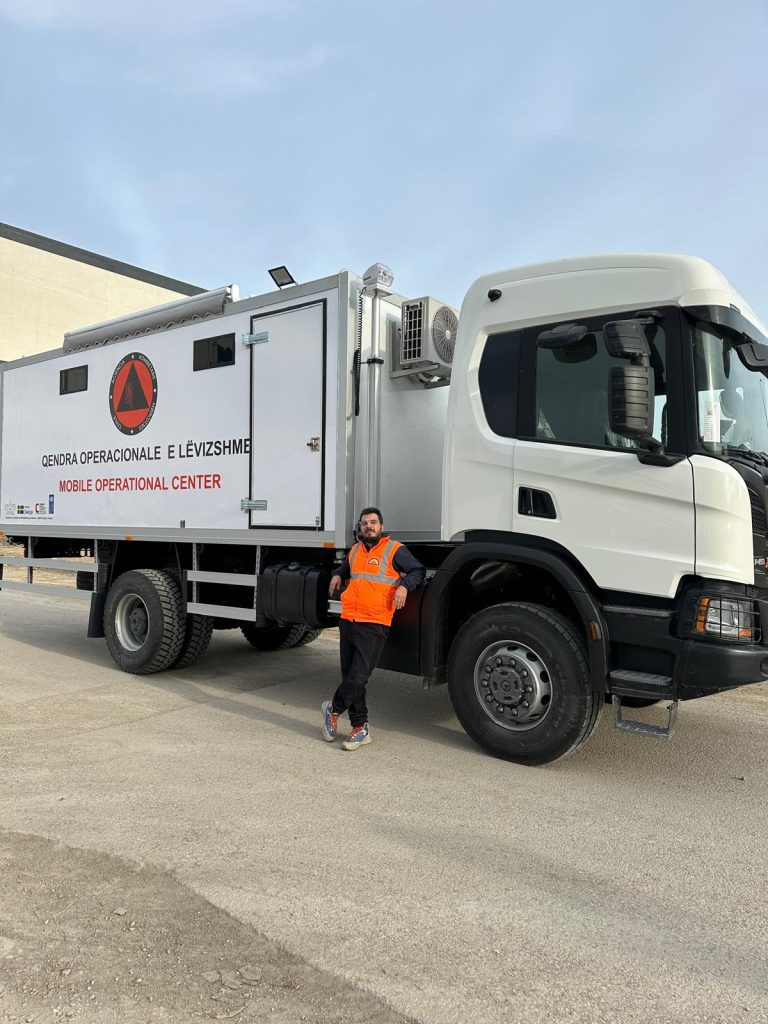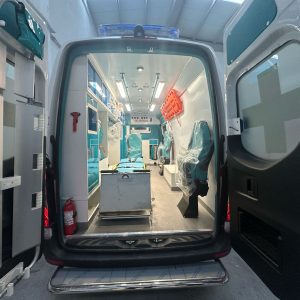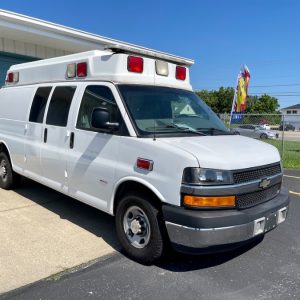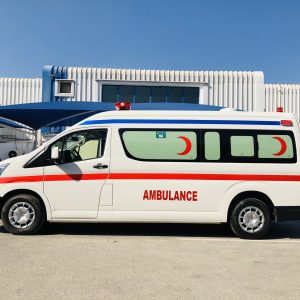Mobile Command Center ; In emergencies, speed and coordination save lives. Whether it’s a natural disaster, a security crisis, or a large-scale event, decision-makers need a centralized place to monitor, communicate, and take action. Enter the Mobile Command Center (MCC)—a fully equipped operations unit on wheels, capable of delivering strategic command and control wherever and whenever it’s needed.
This article will explore what a mobile command center is, how it works, what industries use it, and what key features to consider when procuring or customizing one.
What Is a Mobile Command Center?
A Mobile Command Center is a specially designed vehicle that serves as a mobile operations hub for field coordination. Equipped with advanced communication systems, monitoring equipment, and IT infrastructure, it provides a secure and self-sufficient environment for:
- Emergency coordination
- Tactical law enforcement
- Disaster management
- Surveillance and reconnaissance
- Border security
- Military field operations
These units are often built on van, truck, trailer, or container platforms and can be rapidly deployed to areas lacking fixed infrastructure.
Who Uses Mobile Command Centers?
Mobile command units are used by a wide range of public and private sector organizations:
1. Emergency Response Agencies
Fire departments, civil defense, and disaster relief organizations use MCCs to coordinate rescue operations and logistics in crisis zones.
2. Police and Law Enforcement
Used for riot control, hostage situations, border patrols, and high-risk operations.
3. Military Forces
Mobile command posts are vital for battlefield coordination, communications, and field intelligence gathering.
4. Government and Municipalities
For large public events, elections, or crises, MCCs serve as local headquarters.
5. Private Security and Critical Infrastructure Operators
Used to monitor and manage large-scale operations such as oil fields, mines, or industrial zones.
Applications of a Mobile Command Center
Depending on the configuration, MCCs can support a variety of tasks:
- Incident management: Coordinate teams during emergencies
- Communications hub: Relay information between field and HQ
- Surveillance center: Use real-time cameras, drones, and sensors
- IT operations: Provide a secure digital environment with servers and data access
- Briefing and planning: Meeting space for commanders and specialists
- Emergency shelter: Provide power, HVAC, and rest areas in the field
Key Features of a Mobile Command Center
A modern mobile operations center is much more than a vehicle—it’s a rolling headquarters. Here are the most important systems to include:
1. Chassis and Vehicle Type
Choose a platform based on terrain, mobility needs, and interior space:
- Van-based (e.g., Mercedes Sprinter, Ford Transit): Compact and fast for urban operations
- Truck-based (e.g., Iveco, MAN): More space, rugged terrain capability
- Trailer or container-based: For long-term deployment or large operations
- 4×4 or 6×6 off-road versions: For harsh environments
2. Communication Systems
The core of any MCC is its communications capability:
- VHF/UHF radios
- Satellite uplink and downlink systems
- 4G/5G cellular routers
- Mesh network integration
- Antenna mast (telescopic or pneumatic)
3. IT and Control Systems
- Workstations with dual monitors
- Integrated server racks
- Secure VPN access to central servers
- IP-based intercom system
- Large wall-mounted displays for maps and video feeds
4. Surveillance and Monitoring
- PTZ surveillance cameras (external)
- Interior CCTV
- Drone integration platform
- Real-time data visualization tools
5. Interior Design and Workspace
- Climate-controlled working environment
- Ergonomic seating and desks
- Meeting area for 4–8 personnel
- Whiteboards, printers, and file storage
- Noise insulation and vibration control
6. Power and Autonomy
- Diesel generator or lithium battery bank
- UPS (uninterruptible power supply)
- Solar panel options
- External power input (shoreline)
Benefits of Deploying a Mobile Command Unit
✅ Rapid Deployment
Be fully operational within minutes of arrival, even in remote or chaotic areas.
✅ Independence
With built-in power, water, HVAC, and data systems, MCCs don’t rely on external infrastructure.
✅ Situational Awareness
Real-time information gathering and command capability improve decision-making in high-stakes environments.
✅ Multi-Agency Coordination
Provide a shared space for police, fire, military, and medical teams to collaborate on-site.
✅ Enhanced Security
Operate in secure, encrypted environments with physical protection from intrusion.
Optional Add-Ons and Custom Features
Depending on the mission, your MCC can be customized with:
- Expandable sides (slide-out walls for extra space)
- Ballistic protection (BR4 to BR6 level)
- NBC/CBRN air filtration system
- Roof platform for observers or antennas
- Armored vehicle integration
- Vehicle-to-grid or vehicle-to-vehicle power sharing
Trends in Mobile Command Center Technology
As mobile technology advances, MCCs are becoming smarter and more efficient:
- AI-assisted surveillance: Automatic threat detection from cameras or drones
- Cloud-based coordination: Remote HQs access the same data in real time
- Hybrid-electric drive: Quieter, lower-emission tactical operations
- Remote diagnostics: Monitor vehicle and system health via IoT sensors
- Augmented reality: Tactical overlays for mission planning
What to Look for in a Mobile Command Center Manufacturer
If you’re procuring a tactical command vehicle, ensure your supplier offers:
🔒 Proven Experience
They should have past performance building for police, defense, or emergency agencies.
🛠️ Full Customization
Your operational needs are unique—ensure the manufacturer builds from scratch or heavily modifies.
🌍 Global Compliance
Certifications should include CE, ISO 9001, military standards (MIL-STD), and optionally NATO STANAG.
🔧 After-Sales Support
Look for spare parts availability, remote diagnostics, system training, and upgrade paths.
Final Thoughts: Mobile Command for a Mobile World
In the age of unpredictability, mobility equals control. A mobile command center ensures that your response teams are never out of reach, never uncoordinated, and never unprepared. Whether you’re managing a wildfire, a security lockdown, or a national election, these units bring decision-making power exactly where it’s needed.
For governments, police forces, emergency services, and private sector operators, the mobile command center is a critical asset that transforms response capabilities—and saves lives in the process.













